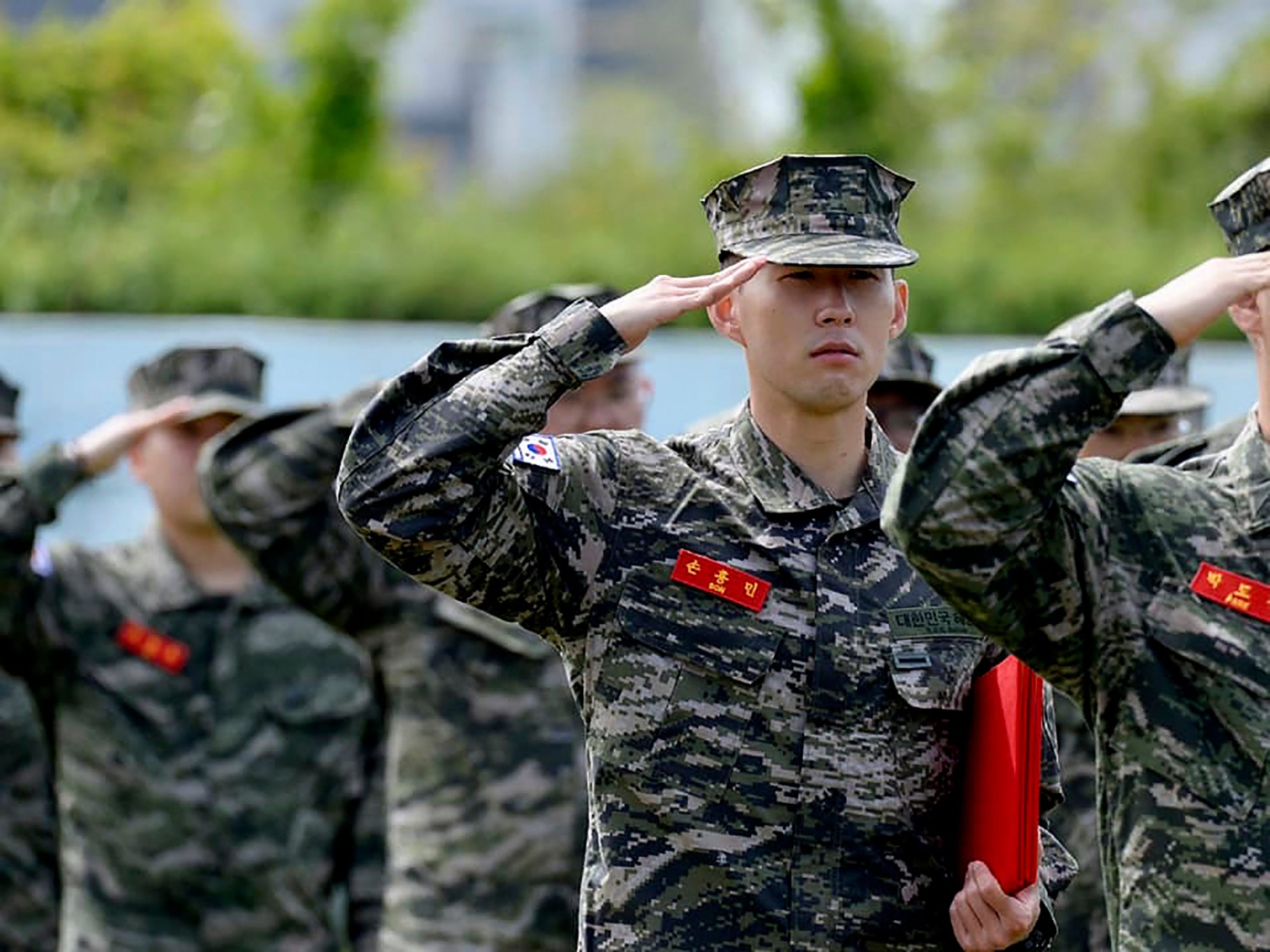Tottenham Hotspur forward Son Heung-min completed a three-week basic military training course in South Korea on Friday and picked up an award as the top performer among 157 trainees, Yonhap news agency said.
All able-bodied South Korean men must serve around two years in the military but athletes who win gold at the Asian Games or a medal of any color at the Olympics receive exemptions.
Son — the top Asian goalscorer in Premier League history and the Asian Football Confederation’s reigning international player of the year — was in the South Korean team that earned an exemption by winning gold at the 2018 Asian Games in Indonesia. The Spurs star broke down in tears of joy after the 2-1 extra-time win over Japan, which meant he could fulfill his obligations with just three weeks’ basic training and around 500 hours of community service.
“He received the ‘Pilsung’ prize which is one of five types of awards for best performers,” Yonhap quoted a Marine Corps officer at the unit on the southern island of Jeju as saying.
“All the courses were judged in a fair and strict manner, and his military training officers have said he went through the training faithfully.”
Likes poured in for the Facebook pictures, with fans posting messages of congratulation.
“He indeed is world-class. I’m a die-hard Son Heung-min fan,” wrote one South Korean marine veteran.
Trainees are exposed to tear gas, go on hikes and receive weapons training during their stint with the marines.
Son, who was quarantined for two weeks after arriving in Seoul from London at the end of March, completed the training while the Premier League season is suspended due to the COVID-19 pandemic.
The forward has not played since fracturing his arm in a league match against Aston Villa on Feb. 16.
South Korea’s K-League was set to kick off later Friday with defending champion Jeonbuk Motors facing Suwon Bluewings in the southwestern city of Jeonju.
The K-League had been scheduled to start Feb.29 but had to be delayed because of the virus outbreak.
No fans will be allowed in stadiums, many which were built for the 2002 World Cup and have capacities of over 40,000, at least for the first few weeks of competition.










Discussion about this post